election2016
Latest
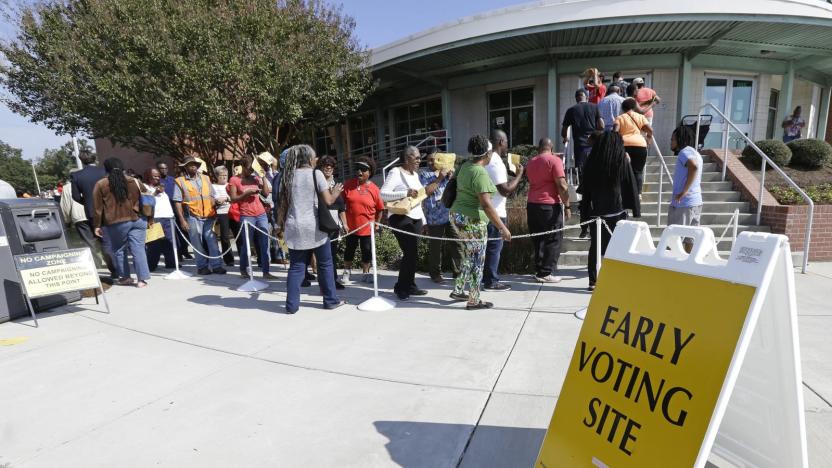
Software firm may have exposed North Carolina to election hackers in 2016
Voting system security is problematic enough, but one company might have unintentionally laid out a welcome mat for hackers. Politico claims VR Systems, a voting software firm targeted by Russians, took a gigantic risk in 2016 by using remote access software to connect to a computer in North Carolina and troubleshoot a voter list management tool in the last two days before the election. As the tool downloaded the Durham County voter list straight from the state's Board of Elections, intruders could have altered local (and potentially state-level) records to prevent people from voting in key precincts.
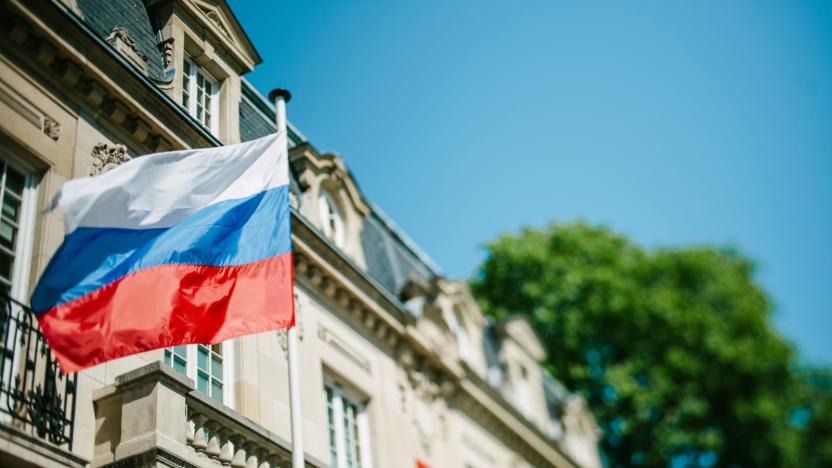
US Treasury sanctions Russians for hacking and election meddling
The US government isn't done taking action against Russians accused of hacking and interference campaigns. The Treasury Department has leveled sanctions against 16 current and former GRU intelligence officers (some of whom were targeted in earlier indictments) for their involvement in multiple campaigns against the US, including the Democratic National Committee hacks, World Anti-Doping Agency hacks and election meddling efforts.
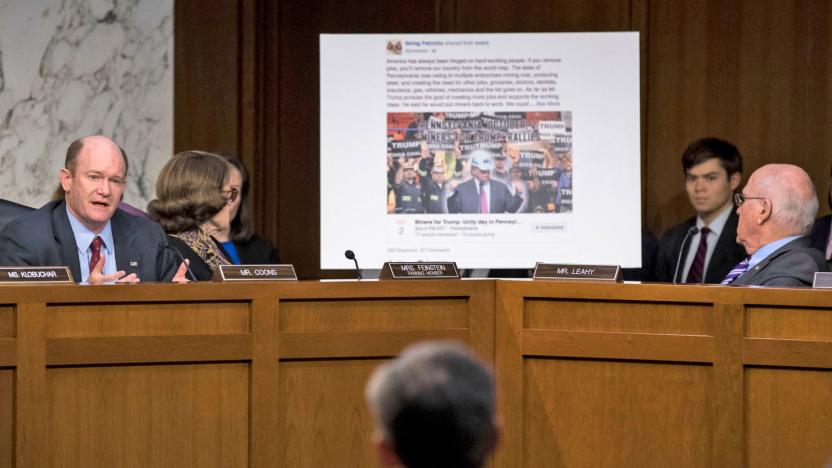
Senate report details Russia's online meddling in 2016 election
The US Senate is about to receive a report detailing Russia's online manipulation attempts during and after the 2016 Presidential election, and it promises to shed new light on the subject... including a lack of evidence from the internet giants themselves. The research, conducted by both Oxford University and network analysis company Graphika, outlines some familiar strategies. The Russians "clearly sought to benefit" the Republicans, rallying support for Trump on social networks while trying to "confuse, distract and ultimately discourage" Trump's opponents. It also notes that Russia's digital influence plans started with Twitter, but quickly expanded to Instagram and YouTube -- Facebook actually came last. They also tried smaller social networks like Google+, Pinterest and Tumblr (owned by Engadget parent company Verizon) as well as email.

NSA leaker Reality Winner sentenced to 5 years in prison
Reality Winner, the whistleblower who leaked NSA election hacking data, pled guilty back in June to a single count of transmitting national defense information. Today, she was sentenced to 63 months in prison, which prosecutors called the longest sentence imposed for a federal crime related to unauthorized disclosure of classified info to the media.
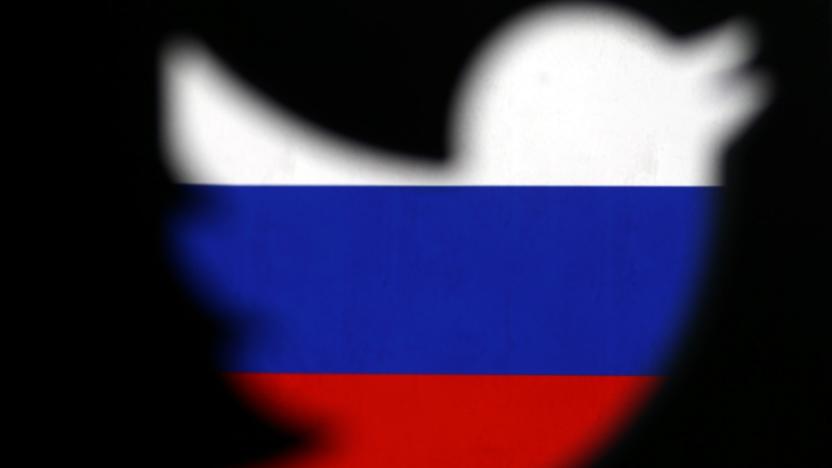
Twitter bans Russia-linked accounts following indictments
The US' indictment of Russian officers over the DNC hacks is having an effect... at least, on Twitter. The social network has banned accounts for both DCLeaks and Guccifer 2.0 in response to the indictment. In a statement explaining the suspensions, the company told Engadget that they were "connected to a network of accounts" that had already been shut down for violating rules. At the same time, Twitter was aware that the shutdowns were considered overdue -- DCLeaks and Guccifer 2.0 have long been linked to Russia, and the indictments just formalized the connections.

US indicts 12 Russian intel officers for hacking Democrats in 2016
Special counsel Robert Mueller and his team have received an indictment for 12 Russian intelligence for hacking Democrats leading up to the 2016 presidential election. The spies are accused of digitally infiltrating the Democratic National Committee and Hillary Clinton's campaign, along with stealing information of 500,000 US voters, and releasing emails with the express purpose of influencing the election.
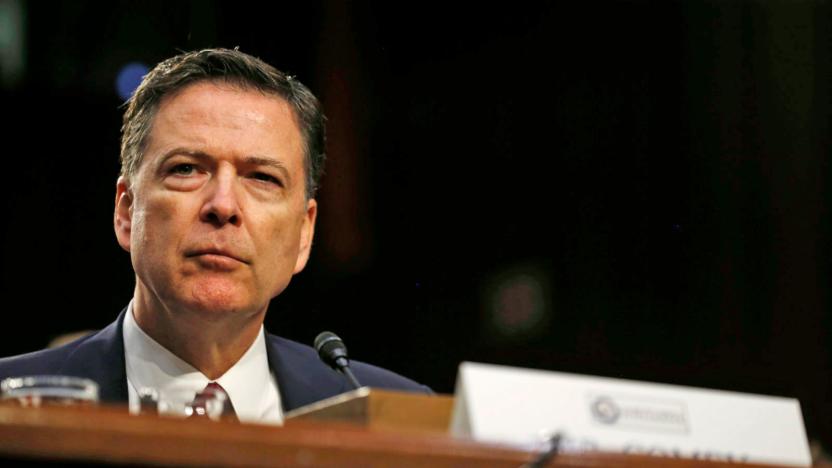
Comey used personal Gmail while FBI director, says federal watchdog
Cast your memory back to the months leading up to the 2016 presidential election and remember the hubbub around then-candidate Hillary Clinton's use of a private email server while serving as secretary of state. FBI director at the time James Comey didn't advise charges against Clinton, then reopened scrutiny in late October days before the election. Whether or not that converted fence-sitters into casting ballots for Trump, his campaign capitalized on the FBI's attention. But according to a report (PDF) by the Justice Department's Office of the Inspector General, Comey himself used a personal Gmail account while operating as director of the agency after the election. The report criticized Comey for using his personal email account for unclassified FBI business, which is understandably inconsistent with DOJ policy, according to CNBC. "I wasn't doing classified work there, so I wasn't concerned about that," Comey is quoted saying.

Cambridge Analytica tries to shoot down Facebook data sharing claims
Cambridge Analytica is facing incredible pressure over the Facebook data sharing scandal -- and not surprisingly, it's determined to share its version of events before Mark Zuckerberg testifies in congressional hearings. The company has posted a "series of facts" that challenge some of the allegations made against the company. Not surprisingly, it started by insisting that it didn't do anything illegal: GSR "legally obtained" the data about Facebook users, and "did not illegally or inappropriately" scoop up and share data. Later on, it maintained that it "only collects data with informed consent."
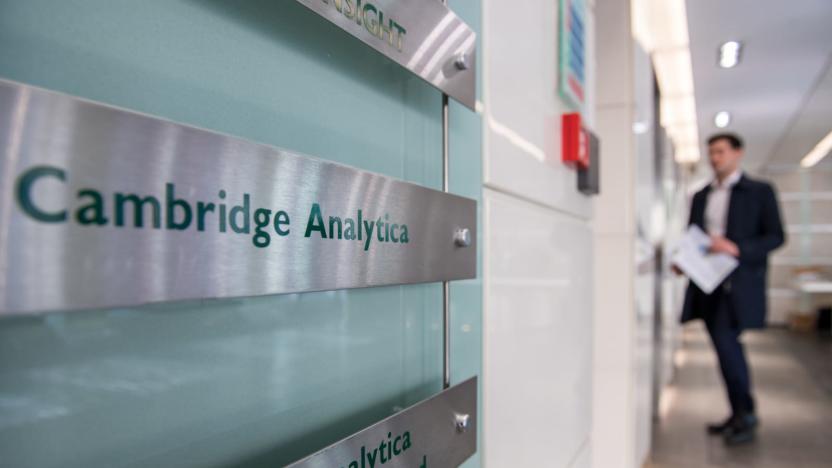
Cambridge Analytica accused of violating US election laws
Cambridge Analytica's Facebook data harvesting hasn't just prompted lawsuits over the privacy violations -- it's now sparking a legal battle over its role in US elections. ABC News has learned that watchdog group Common Cause has filed complaints with the Federal Election Commission and Justice Department alleging that Cambridge Analytica broke federal election laws barring foreigners from participating in the strategies of US political campaigns. According to Common Cause, the UK firm ignored warnings to avoid involvement in American political committees and provided its Facebook user data to help target campaign efforts that included the presidential runs of Donald Trump and Ted Cruz as well as a John Bolton super PAC.

US general says efforts to combat Russian meddling aren't going well
Despite the Mueller investigation indicting 13 Russian nationals who ran social media accounts across multiple social media platforms to interfere with the 2016, the US has no unified multi-agency strategy to protect against Russian cyberattack. That's according to the Supreme Allied Commander of NATO, U.S. Army General Curtis Scaparrotti, in a meeting with the the Senate Armed Services Committee today.
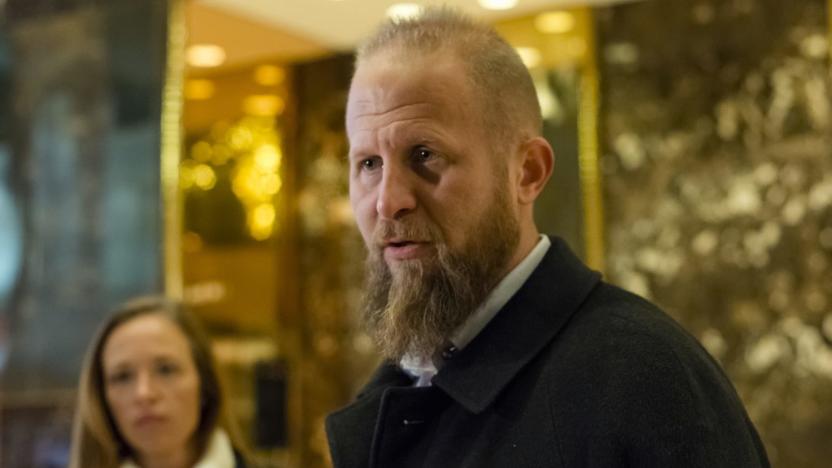
Trump's former digital advisor will manage his re-election bid
Today, Trump announced he will run for re-election in 2020. But we also learned who will be managing his next campaign: Brad Parscale, the digital advisor for Trump's 2016 run. He lead the then-Presidential candidate's social media strategy, which massively influenced the campaign's fundraising and online presence, as Wired reported days after the election. Parscale won't be idle in the run-up to 2020 -- he'll be helping Republican candidates in the run-up to the 2018 midterm elections.

Twitter now says 1.4 million users interacted with Russian spam accounts
Midway through January, Twitter posted a public statement on their blog confirming that over 677,000 users had followed, liked or retweeted messages from Russian-backed spam accounts. The social network reached out to inform everyone who had. But today, Twitter updated their count to 1.4 million users who had interacted with these accounts leading up to the 2016 election.

Mueller investigation interviews Facebook staff in Russia probe
As Special Counsel Robert Mueller's investigation into Russian interference in the 2016 presidential election continues, Wired reports the team interviewed "at least one member of Facebook's team that was associated with President Trump's 2016 presidential campaign." There's no word on what was discussed or implication of what this means, but it comes just a day after the Senate released Facebook's statement that it found "insignificant overlap" between Russian propaganda ads and the Trump campaign. Facebook hs reportedly handed over those Russian ads to investigators, but where things go from here remains to be seen.

Dutch intelligence had a front-row seat to Russian DNC hack
Of all the ways Russia attempted to exert influence over the outcome of the 2016 presidential election, the hacking of the Democratic National Committee (DNC) and party officials was arguably one of the most damaging blows to the Clinton campaign. And according to an investigation by Dutch media, the national intelligence agency of the Netherlands, AIVD, watched the whole thing play out. Anonymous American and Dutch sources tell the story of the AIVD infiltrating the computer network of a Moscow university building -- a network which just so happened to be used by Russian hacking group Cozy Bear, aka APT29.
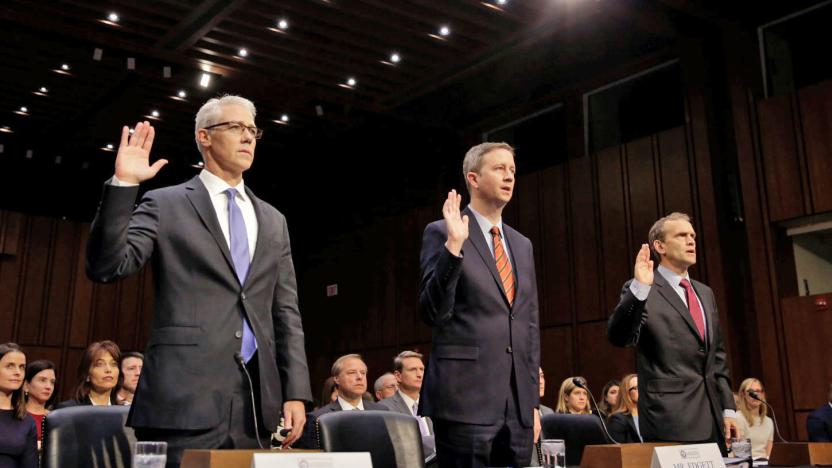
Facebook: Russian trolls created 129 event posts during 2016 election
On Thursday the Senate Intelligence committee released information from Facebook, Google and Twitter responding to Russian involvement in the 2016 presidential election. In its statement, Facebook noted that Russian "Internet Research Agency" (IRA) troll accounts set up 129 events across 12 pages, that were viewed by over 338,000 accounts, with 62,500 saying they were going. What isn't known is how many people actually went to these events, many of which were set up to inflame opposing groups on topics such as Black Lives Matter or immigration.
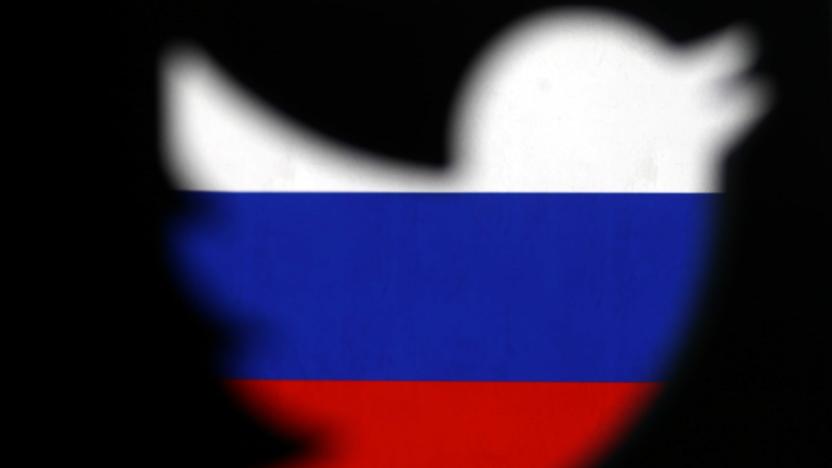
Twitter is notifying anyone who followed a Russian spam account
Last week, Twitter missed the deadline Congress set to turn over information on Russia-backed meddling in the 2016 election. Today, the social media company posted a public update on their internal investigation. First, they found thousands of additional accounts associated with the Russian government-linked Internet Research Agency (IRA). But most importantly, Twitter is emailing notifications to everyone in the US who inadvertently followed one or retweeted or liked one of their messages -- which is some 677,775 people.

Twitter missed its Russia election interference deadline
Over the course of 2017, evidence emerged that Russian actors posted advertisements and content on US-facing sites leading up to the 2016 election to influence public opinion. As part of their investigations, the Senate Intelligence Committee sent Facebook, Google and Twitter written questions to answer by yesterday. The former two complied but Twitter missed the deadline, the committee's top Democrat Senator Mark Warner told Axios.
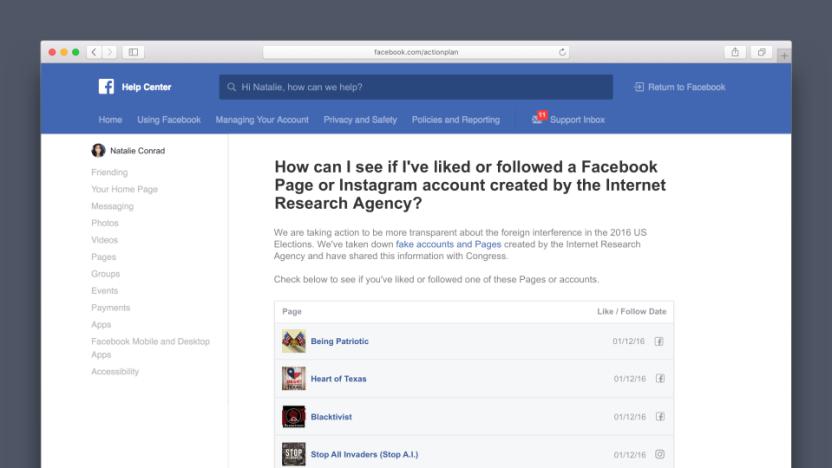
Facebook will alert you if you liked a fake Russian account
As part of its ongoing transparency efforts on Russian activity, Facebook today revealed that it will soon let users find out if they liked or followed pages created by the Internet Research Agency between January 2015 and August 2017. The company said it plans to roll out the tool by the end of this year, which is going to live in the Facebook Help Center and will also include information about Instagram accounts.
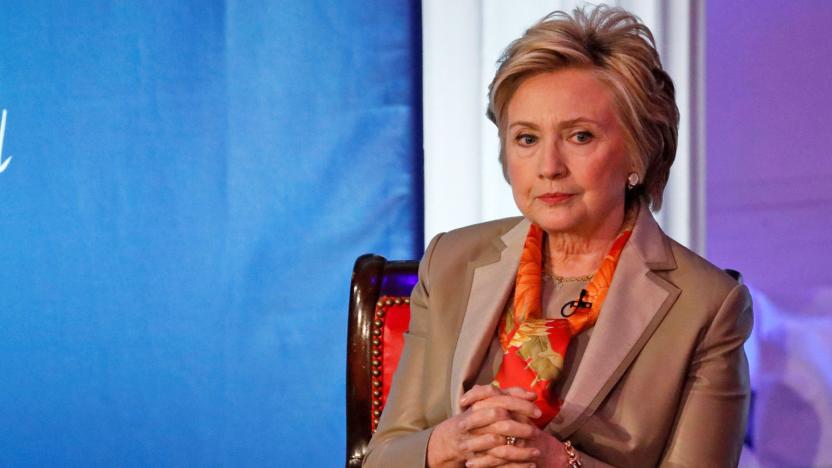
AP investigation details how Russia hacked the DNC’s emails
Today, an extensive Associated Press investigation revealed just how Russian actors hacked into the Hillary Clinton campaign. A single successful phishing email out thirty attempts sent in March 2016 gave the hacking group access to plenty of the Democratic candidate's secrets, which had severe consequences for her campaign and the party as a whole. As the AP reveals, this wasn't just a few messages that happened to deceive a lone gullible employee: The hacking campaign attempted to compromise Clinton's inner circle and over 130 party employees and supporting staff.
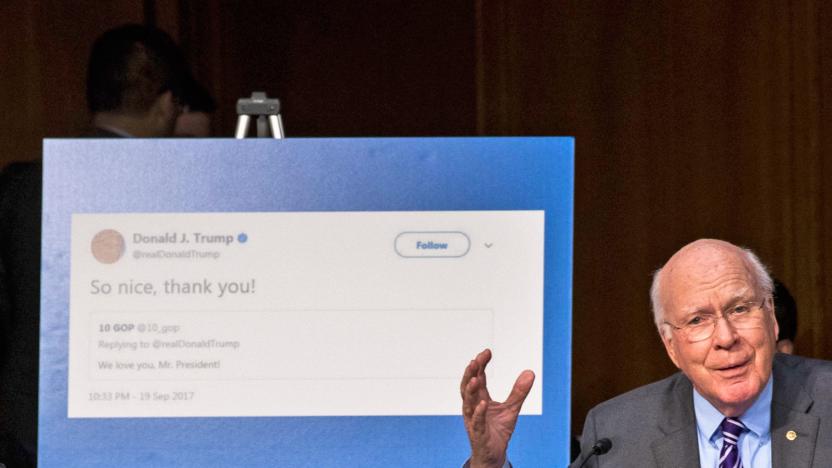
Major news outlets shared Russian propaganda from Twitter
Now that it's clearer just how many Twitter accounts have been linked to the Russian government (2,752 at last count), it's becoming evident that many reputable news sites were tricked into sharing propaganda. Recode and media intelligence company Meltwater have determined that the Washington Post, CBS, the Miami Herald, Vox Media (which owns Recode) and other well-known media outlets shared tweets from Russian accounts without realizing that these "grassroots" posts were really misinformation efforts.




